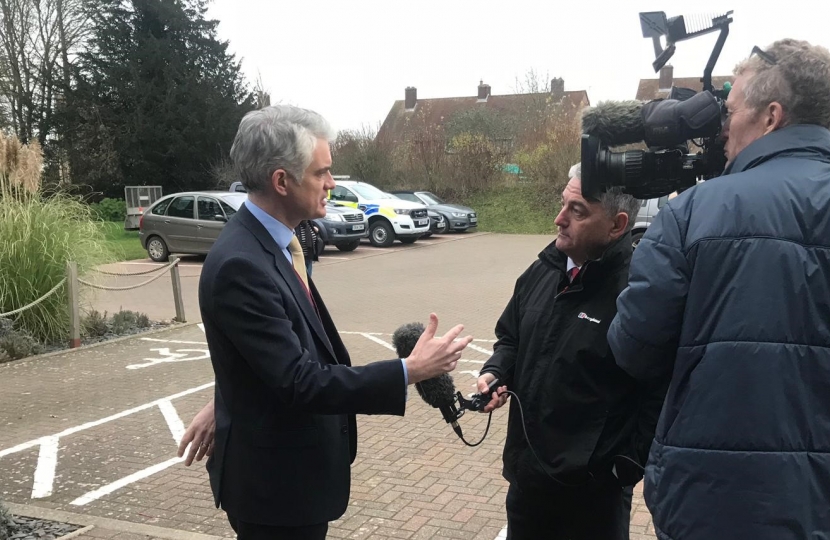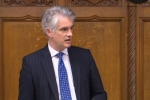
I have outlined my current position on Brexit below:
To recap, I campaigned to Remain. I did so not out of fear of leaving, but out of a belief that the peace and prosperity we have been so fortunate to enjoy in recent decades is in no small part due to the nations of Europe finally putting nationalistic confrontation behind them, and coming together within the EC and then the EU, bringing economic security alongside NATO’s military umbrella. I was deeply opposed to membership of the Euro and took the view that being in the EU, with a seat at the table to influence its rules, and yet uniquely the only major nation outside the single currency, was a position of ‘having our cake and eating it’. I also believed that leaving would entail the type of profound uncertainty we are now seeing, whilst taking up all of the Government’s energy when there are so many other priorities that need our attention. This has proven to be the case, even if the wilder ‘project fear’ predictions have not transpired as I never believed that they would.
Nevertheless, I also voted the referendum into law because I believed that the country could not go on forever being bitter in many quarters about its membership and had to make a decision, one way or the other, about its future. Above all, I promised to abide by the decision of that referendum and have not changed that promise. I therefore voted for Article 50 and the Withdrawal Act and maintain my core position that the job of MPs and the Government continues to be to find a sensible way of leaving and honouring the referendum result, whilst avoiding undue economic harm and instead paving the way for a prosperous more independent future.
I therefore believe that we need to find a compromise. Unfortunately, the nation is bitterly divided. Indeed, I have received a large number of emails advocating, in almost equal proportion, either leaving with ‘no deal’ or holding a second referendum. I strongly oppose both outcomes, which would be a complete anathema to the other side of the debate, after a result which was 52/48 not 100/0. I believe that ‘no deal’ would be a huge economic, political and logistical risk. The major manufacturers in my constituency have been to see me about such an outcome and are extremely worried by the possibilities. This is not ‘project fear’ but, in my view, a rational assessment of the risk involved in so sudden a rupture. This would involve defaulting to WTO trade rules from April with tariffs and protectionism returning between us and our largest trading partner, and all the red tape involved in tariffs. Meanwhile I think it likely that this would crystallise the uncertainty now building as we near departure date, precipitating even greater hesitancy over investment, which is one negative economic impact that we are definitively seeing.
As for a second referendum, this would be utterly divisive. The message to leave voters would be completely unacceptable: to tell them that their vote did not count and that they ‘got it wrong and should vote again till they got it right’. And what if the outcome is the same? Most people advocating this option seem to me to assume a remain vote this time. I am staggered by such an assumption.
In my view, the UK has voted against being on the inside and the option of being completely on the outside (WTO) is high risk and not what the leave campaign promised or even spoke of at all in the referendum itself. So I am afraid that the only credible answer is a middle way ‘semi-detached’ half in half out option that forms enough of a compromise to balance leaving the EU’s political corpus whilst retaining sufficiently strong links to protect our economy.
The most important element in that compromise is the House of Commons. I genuinely respect all those on the leave side who, if truth be told, did not vote on immigration grounds as some say (though that was a factor in the result) but on grounds of ‘sovereignty’. Yet the most important assumption of such a belief is that our Parliament must be sovereign. How can we therefore want any outcome that is not supported by Parliament? This is the unavoidable fact of our position. The people have chosen to leave but the method of doing so must pass through the House of Commons. There is no majority for either ‘no deal’ or a second referendum.
Of course, one might argue that there would appear to be no majority for the Prime Minister’s deal, which is in effect a semi-detached model. I was one of those who texted the Chief Whip last weekend urging him to postpone the vote and urge the PM to return to Brussels to improve the terms of the backstop. I said this because I knew that the vote would have been decisively lost, ushering in chaos.
So I sincerely hope that the initial, and somewhat inevitable, hand bags at 12 paces we saw at the end of last week in Brussels will lead to a legally credible commitment to the temporary nature of the backstop. After all, the deal otherwise has many strengths: ending free movement; stopping us paying billions in membership fees; taking back control in key areas like farming, fishing and trade policy; ending the direct jurisdiction of the ECJ. And yet, the deal would also come with a robust transition to ensure we left without disruption, and preserve a deep and special relationship with the EU based on tariff free, quota free trade and every effort to minimise friction at our borders. That does not sound to me like a deal that some have suggested to me is an act of ‘treason’. It is potentially the compromise that sees us actually leave the EU and deliver on the referendum, whilst protecting our economy, that must surely be our goal.
Now that the Prime Minister has survived a leadership vote, we need to focus all our energy on trying to improve the proposed deal so that it can command a majority in the Commons. I have always believed in being straight with my voters and do not currently think it would pass, but much work will be done in the days ahead and we have to remember that the national interest will not be well served by further instability.
The alternative is potentially ‘no deal’, and all that entails, or more likely in my view would be some outcome of even greater distaste to ‘hard’ Brexiteers than the Prime Minister’s proposal. Certainly, if there is no compromise in the weeks ahead then we will find ourselves unable to decide and then the pressure for the public to make the decision for us – and potentially overturn the last referendum – would grow.
Ultimately, this is an issue of vast complexity and it has unquestionably placed great strain on every part of our polity. We all need to hold our nerve, Keep Calm and Carry on to Christmas, and then re-engage in the new year at the decisive moment of finally choosing how we will actually go forward.
I cannot promise that every voter in my constituency will be entirely happy with my approach. I can promise that I will always do what I believe to be in the best interest of my constituents.


